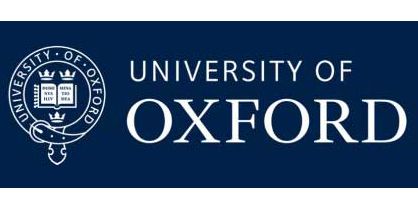
Appel à candidatures de personnes qualifiées pour une bourse doctorale à l'Université d'Oxford. Le ou la lauréat.e de la bourse rédigera une thèse sur un aspect de la "Diversité dans le panorama littéraire français" (l'indication est volontairement large pour permettre aux candidat.e.s de définir un sujet correspondant à leurs centres d'intérêt). Il ou elle travaillera sous la direction de Catriona Seth, titulaire de la Chaire Maréchal Foch, et en collaboration avec l'Institut français du Royaume-Uni et le service ESRI de l'Ambassade de France à Londres.
Pour plus de détails sur le processus d'inscription et les attendus, merci de suivre ce lien : https://www.oocdtp.ac.uk/diversity-french-literary-panorama.
A noter : si un niveau correct d'anglais est nécessaire, la thèse elle-même pourra être rédigée en français.
Version anglaise de l'annonce complète :
In 1921, René Maran was the first Black author to be awarded the prestigious Prix Goncourt for his novel Batouala. One hundred years later, Mohamed Mbougar Sarr’s 2021 Prix Goncourt for La Plus Secrète Mémoire des Hommes, Djaïli Amadou Amal’s numerous prizes including the Choix Goncourt UK for Les Impatientes, and David Diop’s International Booker Prize (with translator Anna Moschovakis) for At Night All Blood is Black (Frère d’Âme) the same year gave wide exposure to authors drawn from what the French call ‘la diversité’. Whilst this is cause for celebration, it also suggests a number of questions… How have writers with different geographical and social origins changed the face of French fiction? How have canons evolved in recent years to offer a more diverse panorama? What role is played by literary prizes and festivals on the one hand, by translations and other aspects of reception on the other? Is there a real trickle-down effect which impacts authors beyond the handful who are thrust into the limelight for instance when it comes to prescribed texts for curricula or translations into English? Are readers or critics at the vanguard? Do other countries, particularly other former colonial powers, have similar characteristics in terms of literary diversity?
Whilst there is no expectation that all of these questions will be addressed, the doctoral thesis will offer scope to map some of the developments which have taken place in the century which followed the first award of the Goncourt to a Black author, René Maran, for Batouala in 1921 and Mohamed Mbougar Sarr’s afore-mentioned 2021 Prize. The student will be able to devise their own project within these parameters and might choose for instance to concentrate on a particular period; on an author or set of authors; on the role of awards, like the ‘Goncourt des Lycéens’ and foreign Choix Goncourt; or on the part played by specific actors like translators or foreign-language publishers and journalists. The partner institution, the Institut Français in London, through the French Books Service and the French Embassy’s Higher Education and Science service (ESRI), will facilitate the student’s access to sources and data, as well as to some of the people involved in the gradual defining of the shape of contemporary French literature. This will enable the successful candidate to engage with some of the activities which accompany the promotion of books. Aspects of this experience will be directly relevant to the doctorate.
Supervision
The main supervisor is Catriona Seth FBA MAE, Marshal Foch Professor of French Literature, University of Oxford (see profile on faculty webpage). The student will be based in Oxford's Faculty of Medieval and Modern Languages, one of the world’s leading centres for the study of multiple literatures and cultures in one of the biggest and most vibrant languages faculties in the world. The Faculty has an active research culture and regularly hosts workshops and conferences that bring together students and faculty members in – and between – individual languages and disciplines. The Modern Languages Graduate Network offers academic and social opportunities for graduate students, including graduate-led seminars, and a mentoring scheme is in place to help new graduates integrate into the Oxford academic community. The Faculty also maintains an active presence in TORCH (The Oxford Research Centre in the Humanities) with graduates, early career researchers, and faculty participating in its research networks and programmes.
The student will benefit from the active supervision of two partner supervisors, Dr Florence Ferran, Attachée for Science and Higher Education, French Embassy in London and Dr Mathias Rambaud, Head of French Books, Institut Français.
The project will open up considerable opportunities for the acquisition of skills and for professional development, including experience in outreach and public engagement. The student will receive full support and relevant mentoring from the University of Oxford as well as the Institut Français du Royaume-Uni (IFRU) and the French Embassy’s Higher Education and Science service (ESRI). The successful candidate will work with members of the Institut Français and the French Embassy’s Higher Education and Science service to prepare a series of short policy reports on aspects of diversity in literature, will engage with stakeholders and assist with the organisation of events like the ‘Choix Goncourt UK’. They will be given desk space at the Institut Français during any preparatory work. Should this be of interest to the student, there will be opportunities for a professional placement of up to three months at the Institut Français, for instance to work on the ‘Beyond Words’ festival or other aspects of its cultural programme. Any placement will be supported by an extension to the studentship funding.